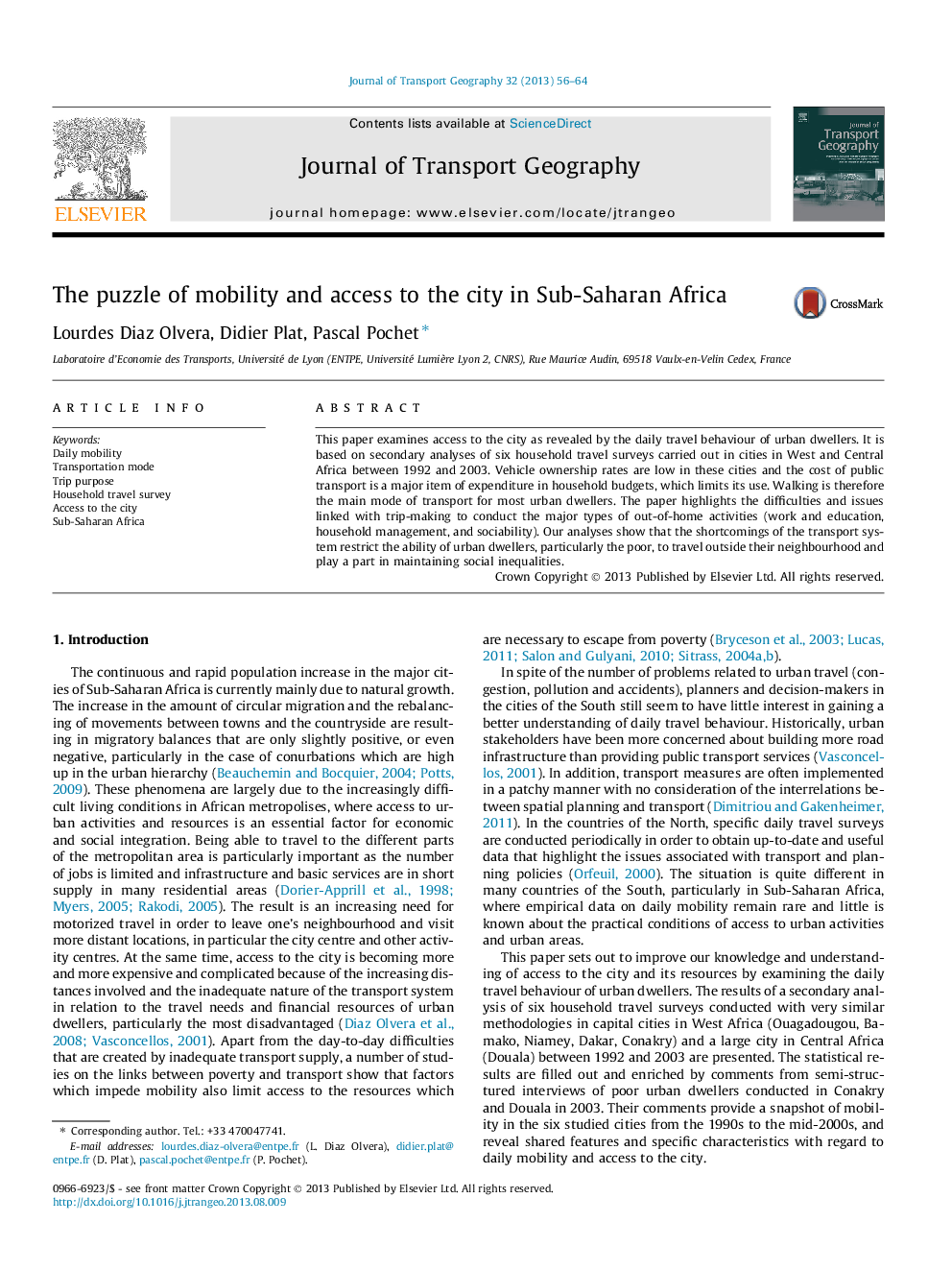| Article ID | Journal | Published Year | Pages | File Type |
|---|---|---|---|---|
| 1059277 | Journal of Transport Geography | 2013 | 9 Pages |
•We present a cross-comparison of daily mobility in six Sub-Saharan African cities.•Travel and access to the city are essential for developing human capital.•Mechanized travel is limited and walking is the main mode of transport.•Economic barriers restrict access to public transport, particularly for the poor.•Activities often take place near home due to travel difficulties.
This paper examines access to the city as revealed by the daily travel behaviour of urban dwellers. It is based on secondary analyses of six household travel surveys carried out in cities in West and Central Africa between 1992 and 2003. Vehicle ownership rates are low in these cities and the cost of public transport is a major item of expenditure in household budgets, which limits its use. Walking is therefore the main mode of transport for most urban dwellers. The paper highlights the difficulties and issues linked with trip-making to conduct the major types of out-of-home activities (work and education, household management, and sociability). Our analyses show that the shortcomings of the transport system restrict the ability of urban dwellers, particularly the poor, to travel outside their neighbourhood and play a part in maintaining social inequalities.
